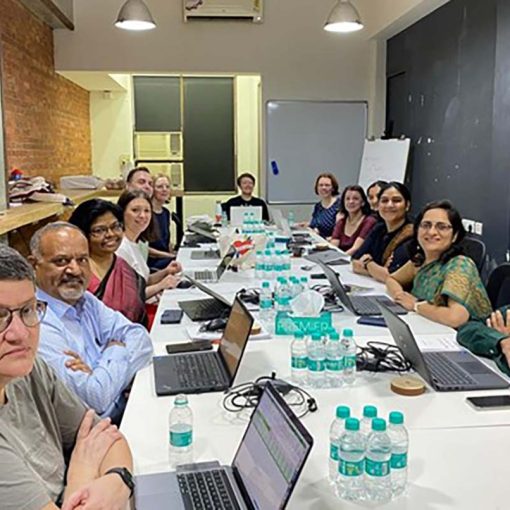Most companies in Finland and Germany still offer standardized work schedules (Sutela 2009; BAuA 2016, 10). However, there are numerous advantages for the employer and employee in flexible work arrangements for the employer. Additionally, due to a lack of time control, a shift of the basis for the compensation from time to performance might be required. Therefore, students from LAB university of applied sciences and Anhalt University of applied sciences were asked about their expectations for their future work.
Mackeldey (2022) researched preferred future work time arrangements for students in the two universities of applied sciences. The target was to provide insights in students’ expectations and the need for flexible work time management. The research focused to the possibilities for work arrangements which fulfil employee’s needs of flexibility and self-determination.
How the next employee generation wants to work
The students expect to have a high level of flexibility and self-determination in their work arrangements. Important for them are especially the decisions about the beginning and end as well as the break times of the work. Furthermore, the students would like the possibility to work longer days in exchange for days off work and they are expecting to be able to work remotely.
Also, the self-evaluation of the students on when and where they work most efficient shows that individual arrangements benefit their productivity.

Therefore, trust-based working hours and the compressed work week, in combination with remote work are great possibilities for the employer to be appealing to the next employee generation and utilize their potential.
A shift in compensation arrangements
The students are quite wary when it comes to a shift in compensation arrangements, the fear of an unequal treatment is high when the compensation is based on performance instead of time. However, a basis salary and performance-based bonuses in combination with frequent performance evaluation would be accepted by a majority. For example, merit increments would be a suitable option.
Summarized, flexible and self-determined work schedules meet the expectations of the students for their future work time arrangements. However, a shift towards performance-based salary is limited by the expectations of the students.
Authors
Lea Mackeldey is an international business double degree student at LAB University of Applied Sciences and Anhalt University of Applied Sciences and is interested in researching the opportunities of work time arrangements.
Jaana Tanhuanpää works as a senior lecturer in LAB University of Applied Sciences in Business Unit.
References
BauA. 2016. Arbeitszeitreport Deutschland 2016. Dortmund: Bundesanstalt für Arbeitsschutz und Arbeitsmedizin.
Mackeldey, L. 2022. Flexible work schedules. The future of work arrangements in Finland and Germany. Bachelor’s Thesis. LAB University of Applied Sciences. Cited 24 Mar 2022. Available at https://urn.fi/URN:NBN:fi:amk-202203023034
Sutela, H. 2009. Working time in the European Union: Finland. Cited 27 Oct 2021.
Available at https://www.eurofound.europa.eu/publications/report/2009/working-time-in-the-european-union-finland
Images
CoWomen. 2019. Five women working by table. Unsplash. Cited 24 Mar 2022. Available at https://unsplash.com/photos/ZKHksse8tUU




